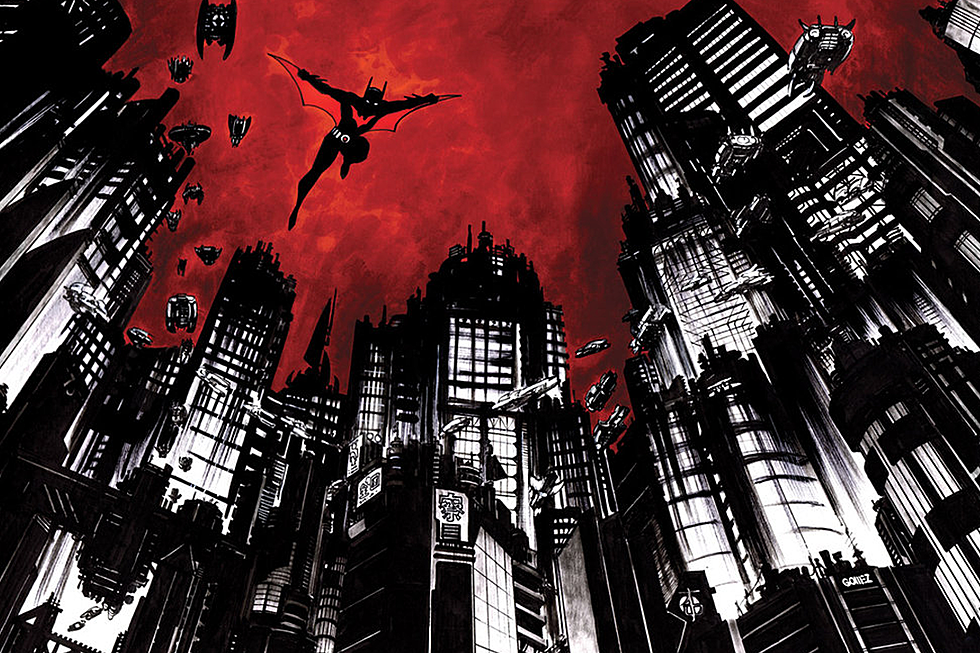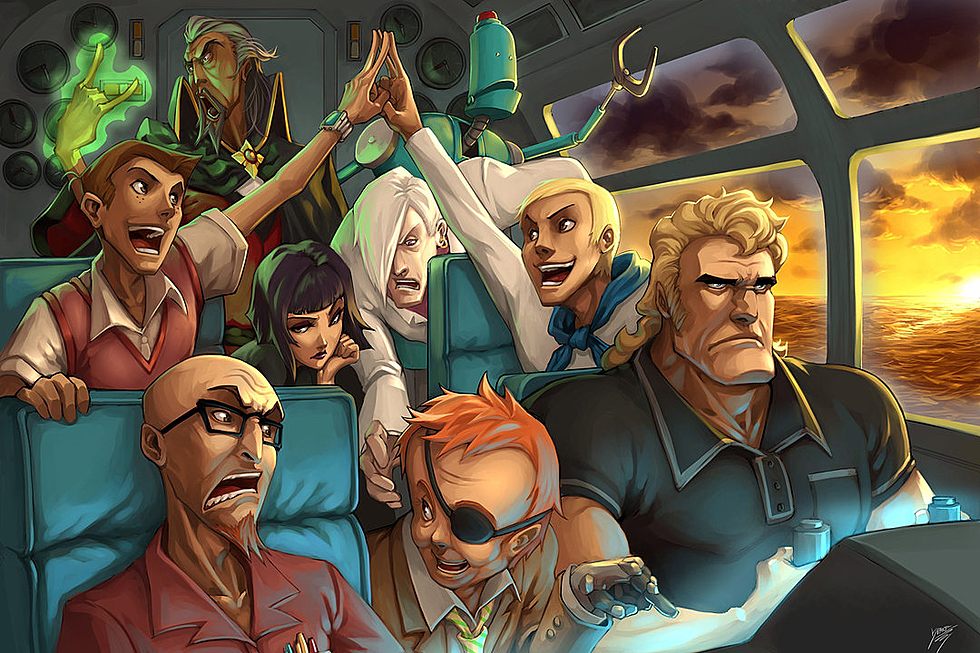
99 Problems But a Cape Ain’t One: Conservatives Attack Islamic Superheroes

Superhero fans, especially those old enough to have opinions, are often divided by their views on the appropriateness of real-world politics in their escapist literature. While many of us regard Dennis O'Neil and Neil Adams' socially relevant run on "Green Lantern/Green Arrow" to be a superlative example of costumed heroes confronting the hard-hitting issues of the day, just as many readers dismiss it as didactic and inappropriate given the characters' roots in benign adolescent power fantasies. But what about when real-world issues encroach upon the mild escapism? What happens then?
These issues are being confronted again with "The 99," a comic about a group of multi-ethnic superheroes with a basis in Islamic culture and faith. An animated series based on the comic was meant to debut last week, but it's been pushed back to January of next year (unlike DC's "JLA/The 99" crossover miniseries, which debuts next week with issue #1). Like New York City's so-called "Ground Zero Mosque," itself envisioned to promote tolerance and peace between Muslims and the greater American population, "The 99" cartoon finds itself imperiled by those who've yet to see or even contemplate the true nature of the work. "Cancel 'The 99' before it starts," wrote the New York Post's Andrea Peyser in an editorial this week.
"Cancel 'The 99' before it starts," wrote the New York Post's Andrea Peyser in an editorial this week.
Hide your face and grab the kids. Coming soon to a TV in your child's bedroom is a posse of righteous, Sharia-com pliant Muslim superheroes -- including one who fights crime hidden head-to-toe by a burqa.
These Islamic butt-kickers are ready to bring truth, justice and indoctrination to impressionable Western minds.
Conservative conspiracy website World Net Daily joined in, writing nearly 1,000 words of warning against the supposedly subversive series. Except, from all appearances, "The 99" is about as subversive as baseball and mom's apple pie.
The superhero group was created by Muslim psychologist Naif Al-Mutawa not to promote radical Muslim values, but specifically to confront them, and challenge the xenophobia preached by radical Imams (possibly the sort of views that have resulted in an American cartoonist going into hiding after challenging Muslim extremists). In an interview with PBS, Al-Mutawa recalls his inspiration for "The 99," which began with the familiar idea of "Pokemon," and his desire to create something for children with that kind of potential:
My next thought was that there had been a fatwa issued against Pokemon in this region. My next thought was, "My God, who are these people, and who appointed them to be spokespeople for Islam?" My next thought was Allah, and how disappointed he must be. My next thought was that Allah had 99 attributes, and that brought me full circle back to Pokemon, which is a concept of 300 attributes.
Each of the heroes of "The 99" represents one of those virtues of Allah, such as strength, mercy and wisdom, attributes that are valued by many faiths and cultures. Praised by U.S. President Barack Obama as embodying "the teachings of the tolerance of Islam," the young heroes also demonstrate these values in their fantastical adventures without any one character praying or even mentioning explicit Muslim scripture nor the Prophet Mohammed, according to ICv2.
Just as importantly, "The 99" are not only intended to present a moderate, tolerant face of Islam to the Western world, but also to the Islamic world itself. In the same PBS interview, Al-Mutawa recalled pitching the idea of "The 99" to investors, and describing the trading cards and stickers of suicide bombers that were sold "in the millions" to children throughout the West Bank and the Middle East. It was time for the Islamic world to find some new heroes, he said.
The inherent Middle Easternness of "The 99" does set it apart from other television cartoons; I don't think we've seen this cultural context presented so obviously in children's entertainment since Disney's "Aladdin" in 1992 (you can count "Prince of Persia" if you like). A seven-minute preview on YouTube reveals more of "The 99's" backstory, which has to do with Mongols plundering and burning a library in 13th century Baghdad, which contained the world's largest collection of knowledge and wisdom. Luckily, the contents of the books were saved within 99 magic gemstones -- "Noor Stones" -- which are discovered centuries later by the young heroes of "The 99."
Such a series mythology is in keeping with the tradition of the variously "ethnic" backgrounds of some of our favorite children's adventure stories: Indiana Jones, Johnny Quest, the Immortal Iron Fist. There are differences, obviously, like the fact that all those heroes are white men inserted into "exotic" locales and cultures to become their champions, rather than heroes actually based in those milieus, as seems to be case with "The 99."
 That one female character, Batina the Hidden, wears a burka and a few other heroes wear headscarves seem to be sticking points for opponents of "The 99," and opponents of Islam in general. Indeed, Peyser's critical New York Post piece is called "Trading Cape for the Burqa," as if even gazing upon such fictional children will be enough to prompt non-Muslim American children to abandon our Western fashions and adopt all the trappings of the dreaded Sharia, or Islamic Law. It's the next dangerous fad that will get your children into trouble, like huffing paint or drag-racing down the street at night.
That one female character, Batina the Hidden, wears a burka and a few other heroes wear headscarves seem to be sticking points for opponents of "The 99," and opponents of Islam in general. Indeed, Peyser's critical New York Post piece is called "Trading Cape for the Burqa," as if even gazing upon such fictional children will be enough to prompt non-Muslim American children to abandon our Western fashions and adopt all the trappings of the dreaded Sharia, or Islamic Law. It's the next dangerous fad that will get your children into trouble, like huffing paint or drag-racing down the street at night.
Andy Sullivan, a Queens construction worker opposed to the "Ground Zero mosque," on "The 99":
They're taking advantage of the fact that in every middle-class household, Mom and Dad are working their asses off. They know the kids are watching TV or on the Internet. So maybe Sharia becomes OK. It's a game. It gradually becomes more and more in their lives.
Why shouldn't Mr. Sullivan be scared? In the United States, Sharia is most often discussed in connection with Muslim extremists such as the Taliban in Afghanistan and other places where one imagines thieves' hands being cut off at the wrists and women being executed for having the misfortune of being raped. Sharia has also been invoked as a boogeyman by some conservative American politicians, who say their liberal opponents intend to adopt Sharia in some official capacity. Former Speaker of the House of Representatives, Newt Gingrich recently came out firmly against Sharia being "considered as a replacement for American law" (even though no American politician is promoting anything of the kind). Sharia is coming for our courts and it's coming for our kids!
In reality, Sharia is not a by-the-books law but more of a set of social and political beliefs practiced by Muslims around the world, who differ on the details depending on where you go and who you talk to. What's generally true across the board is that Sharia is about being culturally conservative, behaving very modestly with respect to sex and money, and practicing a high level of courtesy and reverence for one's neighbors.
But even by this most unspecific definition of Sharia, "The 99's" connection to Islamic law seems tenuous at best. The reality is that Superman himself operates in a way that would be very agreeable by most mainstream interpretations of Sharia, and it is with pronounced irony that conservative Americans, particularly those in favor of living life like we're all Boy Scouts, react so hatefully towards Muslims, who are truly their allies in this regard.
If "The 99" were truly promoting the kind of intolerant views so feared by detractors -- if the super-strong Jabbar left an unmarried woman to burn in a fire because he found out she was banging her boyfriend, for example, or Betina the Hidden refused to stop some bank robbers unless the bankers agreed that "Israel should be wiped off the map," then we would have a problem. But none of those things are going to happen, and for millions of Muslims around the world, those things are not what Sharia is about.

There are no doubt numerous empirical studies that suggest a wild conversion of non-Muslim American children to Islam or an adoption of fundamentalist Sharia is incredibly unlikely, but I can best speak to my own experiences as an American youth growing up not just in front of Islamic-themed television, but in actual Islamic countries. So as to deflect any accusations of religious bias, I should point out that my surname, Khouri, is Arabic for "priest," and it's a name my ancestors took on as they converted to Christianity. It is from within that Christian heritage that I first encountered Islam -- not on my television, but living next door. As a child I lived in Abu Dhabi, the capital of the United Arab Emirates, where Islam is the official religion and Arabic is the official language. The little girls next door wore headscarves, as did all the women on our street -- except for my Scottish/German mother and my half-Arabic sister, since they weren't Muslims. The broadcasts of "Astro Boy" and "The Muppet Show" were interrupted for salah (ritual prayers), and I took a mandatory Arabic language class in school.
Strangely, over twenty years later, I remain a non-Muslim who can't speak Arabic, and I suspect the same will be true of non-Muslim children who watch "The 99." The worst that could happen, if you're inclined to think of it that way, is that non-Muslim American children may actually learn that while Europe was up to its eyeballs in the Dark Ages, the Middle East was experiencing a cultural renaissance. Non-Muslim American children may actually lay their eyes upon fictional kids of perhaps unfamiliar backgrounds stepping up to become heroes themselves, rather than backwater citizens in distress waiting for Tom Cruise's "Last Samurai" or Kevin Costner's "Dances With Wolves" character to come save them.
In the mythology of "The 99," these young heroes appear to explicitly embody virtues and powers that inform all superhero stories, and with a stated mission to change the world for the better by focusing on those ethics and not on any religious dogma. It is a mission that Grant Morrison and Deepak Chopra have advocated for years.
"The 99" creator Naif Al-Mutawa, in conversation with CNN:
It is finally time that all of us became more accountable for that which our children will be hearing; tiny differences setting us apart rather than celebrating those positive things that bind all good people together. If we allow small-minded men to spout fear and hate in the name of our religion, we will enable them to brainwash another generation as they did our own. And soon, the next generation will fall into a pit of dissonance. To sit by silently makes us all complicit.
There's nothing to disagree with there, and children could do a lot worse than watch animated series based on that outlook. Assuming any children watch "The 99" at all.
You see, having broken down the bigoted, anti-Islamic arguments against "The 99," we're left with the inescapable fact that it just looks like hell. As you probably saw in the preview video above, the animation is like something out of a '90s SEGA game. The characters appear utterly without any depth or attractive edge to their personalities whatsoever. Barring any surprises -- like the series even airing at all in this toxic political climate -- it looks like the U.S. media has embarrassed itself again by railing ignorantly against a work of little substance, a cheap cartoon that depicts only the most basic concepts of good versus evil in the plainest possible language.
Indeed, "The 99" is the superhero cartoon for which conservative parents have prayed for years!
[Via ICv2]
More From ComicsAlliance









